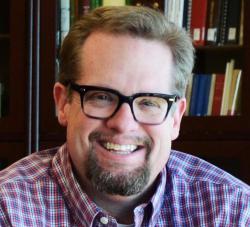I have been thinking a lot about the way we sell church-related goods and services.

I have been thinking about that and about Jesus overturning the tables of the money changers and sacrificial animal sellers in the temple.
The marketing inside the church has probably never been more feverish than it is today. Hollywood hires savvy Christian marketers to try to gin up interest in certain films among our demographic. We trademark little phrases for sale to Christians. I recently heard an acquaintance excitedly describe a system for integrating Prayer and Your Priorities. I shall not share the catchy name for this system so as to avoid smearing the person working on it. This results in a marketing platform for an inspirational book, a devotional, a daily planner for the system, calendars, sticky notes, etc. I imagine it will prove attractive for some Christian publishing house.
My question, though, is whether this is a wholesome thing for the church. As the author of a book, though not a super consumer-oriented one, I think about it all the time. For example, if called upon to preach at a local church, should I take along a box of books to sell at the end of the service? Should I even mention the book? Should I ask whoever introduces me to mention the book? Should we sell ANYTHING in the church?
The question is not as easy as it may appear. For example, the market instincts of new publishers spread Martin Luther’s work to a large audience. Without the printing press, Luther probably would have died as just another dissenter. Marketing and the honest profit motive are surely reasons why the Bible is as incredibly widely available as it is.
But the question remains. How far do we go in making a profit from the gospel of Jesus Christ? I don’t have a good answer.

